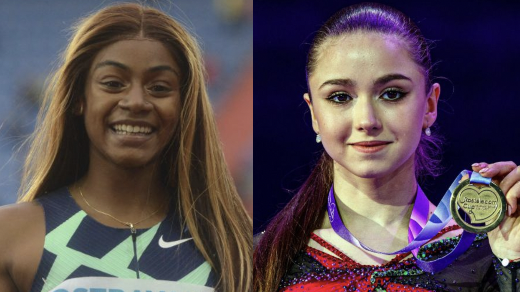After U.S. sprinter Sha'Carri Richardson called out the Olympics for its alleged double standards when suspending players for use of banned substances, the International Olympic Committee (IOC) issued a statement dismissing her accusations.
“You can’t talk about double standards in relation to Russian and American athletes, each case is individual,” IOC spokesman Mark Adams said, The Guardian reports.
According to the National Post, he also commented that "every single case is very different. She [Richardson] tested positive on June 19, 2021, quite a way ahead of the Tokyo Games."
The Tokyo Olympics were postponed due to COVID-19 and commenced on July 23, 2021.
"Her results came in early order for USADA (U.S. Anti-Doping Agency) to deal with the case on time, before the Games. Ms. Richardson accepted a one-month period of ineligibility which began on June 28," he continued. "I would suggest that there isn't a great deal of similarity between the two cases."
Adams' remarks came after Richardson tweeted her thoughts on the Olympics allowing Russian skater Kamila Valieva, 15, to compete in Beijing even though she tested positive for trimetazidine, a banned drug, The Guardian reports.
"Can we get a solid answer on the difference" between the two situations? Richardson tweeted, NPR reports.
Can we get a solid answer on the difference of her situation and mines? My mother died and I can’t run and was also favored to place top 3. The only difference I see is I’m a black young lady. https://t.co/JtUfmp3F8L
— Sha’Carri Richardson (@itskerrii) February 14, 2022
"The only difference I see is I'm a black young lady," Richardson continued on Twitter. "It's all in the skin."
Richardson did not participate in the 2021 Olympic Games in Tokyo after she tested positive for marijuana and received a 30-day ban. She admitted to smoking marijuana after learning about the death of her mother.
Valieva's legal team allegedly tried to convince the Court of Arbitration for Sport (CAS) that the skater mistakenly ingested trimetazidine from a glass of water that her grandfather used to take his heart medication, The Guardian reports.
Richardson pointed out the apparent difference in how the IOC handled the results of the drug tests for both athletes. Valieva failed the doping test in December but did not face suspension. Also, her positive test results did not immediately become public after she led her team to a gold medal in Beijing. However, Richardson's failed drug test results were quickly made public.
The decision to allow Kamila Valieva to continue competing at #Beijing2022 despite a failed drug test "is just a slap in the face to all of those athletes doing it the right way," says @cbrennansports. https://t.co/moDxPjs92g
pic.twitter.com/zzQZEKQP8O— USA TODAY (@USATODAY) February 14, 2022
Valieva is not the first Russian athlete accused of doping. Russia participated in a state-sponsored doping strategy during the 2014 Sochi Olympics, The New York Times reports.
